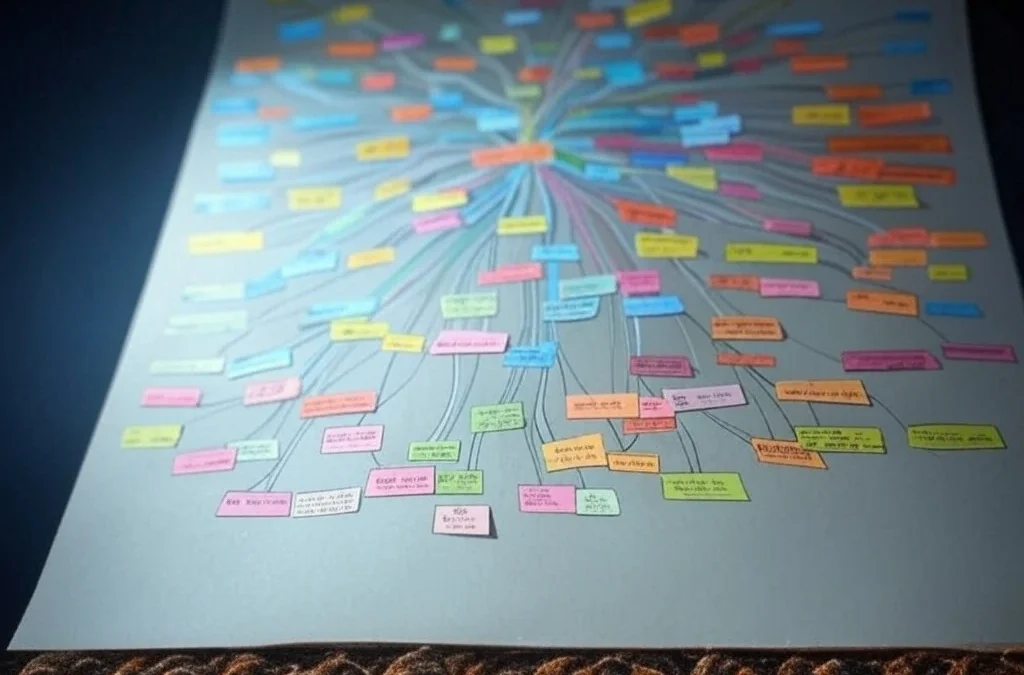Diligence is often the silent force behind extraordinary achievements. While talent and luck certainly play their roles in success, it is the consistent application of careful, persistent effort that truly transforms potential into reality. In a world that increasingly celebrates overnight success and viral moments, understanding and cultivating diligence becomes even more crucial. This quality—the steadfast dedication to tasks and goals despite challenges—separates those who merely dream from those who achieve.
From the student burning midnight oil to master complex concepts, to the entrepreneur refining a business model through countless iterations, to the artist perfecting their craft through decades of practice—diligence manifests in countless ways across all domains of human endeavor. It represents not just hard work, but intelligent, focused persistence that adapts and evolves toward meaningful objectives.
This article explores the multifaceted nature of diligence, offering practical insights for developing this vital quality in your own life. By examining concrete examples, psychological foundations, and practical applications, we aim to provide a comprehensive guide to understanding and embodying diligence in all its forms.
What Is Diligence?
Diligence is the consistent and careful effort put toward achieving a specific goal or completing a task with high attention to detail. It involves persistence, responsibility, and focus over time – especially when challenges arise. Unlike rushed or unfocused activity, true diligence means doing things thoroughly, thoughtfully, and reliably. It is a key quality in personal growth, professional success, and long-term achievement.
30 Examples of Diligence
These real-life examples of diligence show how consistent effort leads to meaningful results. From everyday habits to long-term commitments, each example offers a clear way to understand what diligence looks like in action.
Waking Early for Daily Exercise
Getting up every morning before sunrise to exercise consistently shows discipline. This habit demonstrates the willingness to put effort into personal health.
Consistent Study Routine
A student who studies daily, rather than cramming before exams, displays diligence. This regular habit helps retain information better over time.
Carefully Reviewing Work
Taking extra time to thoroughly review tasks before submission, such as checking emails or reports for mistakes, is a clear sign of diligence.
Maintaining a Personal Budget
Regularly tracking spending and savings requires patience and attention. This discipline helps build financial stability over the long term.
Daily Writing Habit
An author writing every day, even without immediate inspiration, exemplifies diligent practice. It results in steady improvement and creativity.
Practicing a Musical Instrument Daily
Spending time each day practicing an instrument—even when progress feels slow—reflects real diligence and dedication to skill improvement.
Cooking Meals from Scratch
Consistently preparing homemade meals rather than relying on convenience foods requires commitment and perseverance.
Regularly Saving Money
Setting aside a small amount of money each paycheck demonstrates consistent financial diligence and forward-thinking.
Keeping a Clean Home
Regular house cleaning, even when tired or busy, is a simple yet strong example of maintaining diligence in everyday life.
Reading to Children Every Night
A parent who consistently reads to their children each night shows dedication and commitment, nurturing their child’s development.
Practicing Patience in Learning New Skills
Persistently working on mastering difficult new skills, despite setbacks, clearly illustrates diligence and determination.
Caring for Elderly Family Members
Regularly spending time and energy to care for aging family members, even when challenging, reflects a deeply diligent attitude.
Organizing Tasks with a Planner
Using planners or calendars daily to stay organized and productive shows methodical diligence and responsibility.
Consistent Meditation
Taking time each day for meditation, even if brief, demonstrates a disciplined approach to mental health and wellbeing.
Completing Homework on Time
Students who consistently finish and submit their assignments punctually clearly embody diligence and responsibility.
Gardening with Regularity
Tending a garden regularly, maintaining watering schedules, and removing weeds consistently reflect patience and diligence.
Being Punctual for Appointments
Always arriving on time to meetings, events, or appointments reflects a diligent respect for others’ schedules.
Keeping Commitments to Friends
Consistently following through on promises or commitments to friends highlights reliability and diligent character.
Practicing Sports Regularly
Regular training and practice, regardless of weather or mood, demonstrate true diligence and athletic dedication.
Detailed Project Planning
Carefully planning all stages of a project, including potential problems, showcases thorough diligence and foresight.
Learning a New Language Daily
Consistently dedicating time each day to learning and practicing a language exemplifies clear diligence in personal development.
Maintaining Work-Life Balance
Making deliberate daily choices to maintain balance between professional duties and personal life is a diligent approach to overall health.
Consistently Good Customer Service
Providing excellent service to customers every single time, regardless of circumstances, demonstrates diligent professionalism.
Weekly Volunteering
Regularly volunteering one’s time for community or charity projects displays selfless diligence and social commitment.
Writing a Daily Journal
Keeping a daily journal, even briefly, shows consistent self-reflection and disciplined personal growth.
Regular Vehicle Maintenance
Performing routine checks and services on a vehicle indicates practical diligence, preventing future problems.
Carefully Filing Important Documents
Regularly organizing and properly storing documents or files is a clear act of diligence that ensures efficiency.
Always Learning New Job Skills
Continually acquiring new professional skills or certifications clearly represents career-oriented diligence.
Completing Projects Ahead of Deadline
Finishing work tasks ahead of schedule, rather than last minute, showcases exemplary diligence and proactive behavior.
Regular Health Checkups
Consistently scheduling and attending medical checkups, even when feeling fine, demonstrates practical diligence in health maintenance.
The Psychology Behind Diligence
Understanding the psychological underpinnings of diligence can help us cultivate this quality more effectively in our own lives.
Growth Mindset vs. Fixed Mindset
Research by psychologist Carol Dweck highlights how our beliefs about ability profoundly impact our diligence. Those with a growth mindset—who believe abilities can be developed through dedication and hard work—tend to display greater persistence than those with a fixed mindset who see abilities as static traits.
A student with a growth mindset might think: “This math problem is challenging, but with enough practice and different approaches, I’ll master it.” This perspective naturally fosters diligence.
The Role of Self-Efficacy
Self-efficacy—our belief in our ability to succeed in specific situations—strongly predicts diligent behavior. As psychologist Albert Bandura demonstrated, people with high self-efficacy set more challenging goals and persist longer in the face of difficulties.
Building self-efficacy through small successes creates a positive feedback loop that reinforces diligence. Each small win strengthens our belief that persistent effort yields results.
Intrinsic vs. Extrinsic Motivation
While external rewards can temporarily boost effort, research consistently shows that intrinsic motivation—doing something because it’s inherently satisfying—sustains diligence over the long term.
When we connect our work to deeper values and find genuine interest in our tasks, we access a renewable source of motivation that powers persistent effort even when external incentives are absent.
The Marshmallow Test and Delayed Gratification
Walter Mischel’s famous “marshmallow experiments” revealed that the ability to delay gratification—to choose larger future rewards over smaller immediate ones—correlates with numerous positive outcomes throughout life.
Diligence often requires this capacity to forego instant rewards in favor of more meaningful long-term gains. The good news: delayed gratification is a skill that can be developed through practice and environmental design.
Flow State and Optimal Experience
Psychologist Mihaly Csikszentmihalyi identified the concept of “flow”—a state of complete immersion in an optimally challenging activity—as a key component of both performance and enjoyment.
Diligent individuals often experience flow regularly because they consistently engage in activities that stretch their abilities. This creates a virtuous cycle where the intrinsic reward of the flow state reinforces diligent behavior.
You can learn more about the flow state here – 30 Flow State Examples & Definition
Core Traits That Define Diligence
At its core, diligence encompasses several key elements:
Persistence
The ability to maintain effort over extended periods, especially when facing challenges or monotony. Diligent individuals continue working toward their goals even when immediate rewards are not forthcoming.
Attentiveness
A careful focus on details and quality. Diligence involves doing things thoroughly rather than hastily, with an eye toward excellence rather than mere completion.
Purposefulness
Diligent effort is directed toward meaningful objectives. This quality distinguishes diligence from mere industriousness—diligent work serves clear, worthwhile aims.
Discipline
The capacity to maintain consistent habits and routines that support progress, often requiring self-regulation and delayed gratification.
Adaptability
The wisdom to adjust methods when necessary while maintaining commitment to ultimate goals. Diligence isn’t rigid stubbornness but intelligent persistence.
This multidimensional quality manifests differently across contexts—from the meticulous attention of a surgeon to the unwavering practice routine of a concert pianist to the patient nurturing of a gardener. What unites these diverse expressions is the fundamental attitude of careful, sustained commitment to worthwhile work.
Barriers to Diligence and How to Overcome Them
Even with the best intentions, various obstacles can derail our diligent efforts. Recognizing and addressing these barriers is essential for developing consistent diligence.
Procrastination
Perhaps the most common enemy of diligence, procrastination stems from a complex interplay of factors including fear of failure, task aversion, and poor impulse control.
Solutions:
- Break tasks into smaller, more manageable chunks
- Use the “two-minute rule”—if something takes less than two minutes, do it immediately
- Implement accountability systems like public commitments or work partners
- Practice the “Pomodoro Technique” of focused work intervals followed by short breaks
Perfectionism
While diligence involves attention to quality, perfectionism—the need for flawless results—often paradoxically reduces productivity and persistence.
Solutions:
- Embrace the concept of “good enough for now, perfect later”
- Set clear quality thresholds appropriate to each task
- Practice self-compassion when facing inevitable imperfections
- Focus on progress rather than perfection
Digital Distractions
Our hyperconnected world presents unprecedented challenges to sustained attention and diligent effort.
Solutions:
- Use website blockers and app timers to limit digital interruptions
- Create physical and temporal boundaries for technology use
- Practice “digital sabbaths”—scheduled periods completely free from devices
- Design your environment to minimize technological temptations
Burnout
Misapplied diligence without proper rest and recovery can lead to exhaustion and disengagement.
Solutions:
- Schedule regular renewal activities—physical, mental, emotional, and spiritual
- Practice strategic disengagement through meditation, nature exposure, or hobbies
- Recognize the productivity paradox: sometimes doing less accomplishes more
- Focus on work-life harmony rather than rigid balance
Lack of Clear Purpose
Without compelling reasons for persistent effort, diligence becomes difficult to sustain.
Solutions:
- Connect daily tasks to larger meaningful goals
- Regularly revisit and refine your personal mission statement
- Find purpose in the process, not just the outcome
- Seek clarity about how your work serves others or contributes to something larger than yourself
Cultivating Diligence: Practical Strategies
Developing diligence isn’t simply a matter of “trying harder”—it requires thoughtful strategies and consistent practice. Here are proven approaches to building this essential quality:
Start Small and Scale Gradually
The path to extraordinary diligence begins with small, consistent actions. Rather than attempting dramatic transformations overnight, focus on developing “micro-habits” that establish the neural pathways of persistence.
For example:
- Commit to just five minutes of daily practice in a new skill
- Complete one small professional development task each morning
- Read three pages of an educational book before bed
- Write 100 words toward your book project daily
As these small habits become automatic, gradually increase their scope and challenge level.
Design Your Environment for Success
Our surroundings profoundly influence our behavior. Create an environment that makes diligence the path of least resistance:
- Remove or limit distractions in your workspace
- Keep necessary tools and resources easily accessible
- Use visual cues like progress charts or inspiration boards
- Create separate spaces for different types of focused work
- Leverage social influences by working alongside diligent peers
Develop Robust Systems and Routines
Diligence flourishes within the structure of well-designed systems:
- Create morning and evening routines that bookend your day with intentional actions
- Implement weekly review practices to evaluate progress and adjust plans
- Use task management systems that match your working style
- Develop decision frameworks to reduce decision fatigue
- Establish clear metrics to track progress on important goals
Practice Deliberate Discomfort
Comfort is often the enemy of growth. Deliberately placing yourself in challenging situations builds the mental muscles required for diligence:
- Intentionally tackle your most difficult tasks first (eat the frog)
- Regularly attempt activities slightly beyond your current ability level
- Set artificial constraints to force creative problem-solving
- Periodically fast from conveniences like elevators or search engines
- Engage in physical challenges that build mental toughness
Leverage the Power of Community
Diligence is contagious—and easier to maintain within supportive communities:
- Join mastermind groups or accountability partnerships
- Participate in challenges with like-minded strivers
- Make public commitments to increase social accountability
- Seek mentorship from those who embody diligence
- Contribute to communities where your diligent efforts help others
Diligence Across Different Life Domains
Diligence manifests uniquely across various aspects of life. Understanding these domain-specific expressions can help us apply this quality more effectively.
Professional Diligence
In the workplace, diligence transcends mere busyness to encompass thoughtful dedication to quality outcomes. This includes:
- Preparation: Thoroughly researching before meetings and presentations
- Follow-through: Reliably completing commitments on time
- Continuous learning: Staying current with industry developments
- Process improvement: Regularly evaluating and refining workflows
- Problem anticipation: Identifying potential issues before they arise
- Detail orientation: Ensuring accuracy across all work products
Academic Diligence
Scholarly diligence involves sustained intellectual engagement beyond surface-level learning:
- Comprehensive understanding: Seeking to grasp underlying principles rather than memorizing facts
- Structured study habits: Creating and following systematic learning plans
- Active engagement: Questioning, challenging, and extending course material
- Resource utilization: Taking full advantage of available learning supports
- Knowledge integration: Making connections across different subjects
- Intellectual curiosity: Exploring topics beyond minimum requirements
Relational Diligence
Even our closest relationships benefit from deliberate, persistent attention:
- Active listening: Being fully present during conversations
- Conflict resolution: Working through difficulties rather than avoiding them
- Appreciation practices: Regularly expressing gratitude and recognition
- Growth mindset: Viewing relationships as requiring ongoing development
- Boundary maintenance: Consistently honoring commitments and limits
- Forgiveness work: Addressing hurts before they become entrenched
Health and Wellness Diligence
Physical wellbeing requires consistent effort across multiple dimensions:
- Nutritional awareness: Making informed dietary choices consistently
- Movement consistency: Maintaining regular physical activity regardless of motivation
- Sleep hygiene: Establishing conditions for quality rest
- Stress management: Implementing regular practices to reduce harmful tension
- Preventive care: Attending to health maintenance before problems arise
- Recovery practices: Allowing appropriate time for physical restoration
Financial Diligence
Money management reflects our capacity for delayed gratification and careful planning:
- Budgeting discipline: Tracking and allocating resources intentionally
- Systematic saving: Consistently setting aside funds for future needs
- Research thoroughness: Investigating financial decisions before committing
- Debt management: Strategically addressing liabilities
- Long-term planning: Preparing for major life transitions and retirement
- Continuous education: Staying informed about financial principles and options
The Balance: When Diligence Becomes Counterproductive
While diligence is generally beneficial, recognizing its potential downsides helps us apply this quality more wisely. Diligence becomes harmful when it transforms into:
Workaholism
Warning Signs:
- Working excessively without adequate rest or recovery
- Deriving self-worth primarily from productivity
- Neglecting important relationships and personal needs
- Experiencing diminished returns despite increased hours
Healthier Alternative: Sustainable diligence respects human limitations and the necessity of renewal. It recognizes that peak performance requires oscillation between focused work and genuine recovery.
Perfectionism
Warning Signs:
- Excessive concern with avoiding errors
- Difficulty completing projects due to unrealistic standards
- Harsh self-criticism when results fall short of ideal
- Procrastination stemming from fear of imperfect outcomes
Healthier Alternative: Balanced diligence prioritizes excellence within reasonable parameters. It accepts “good enough” when appropriate and values progress over perfection.
Rigidity
Warning Signs:
- Continuing unproductive approaches despite evidence they aren’t working
- Inability to adjust methods when circumstances change
- Over-planning at the expense of action
- Missing opportunities due to inflexibility
Healthier Alternative: Wise diligence remains adaptable. It involves persistent commitment to goals while maintaining flexibility about methods.
Deferred Living
Warning Signs:
- Constantly sacrificing present wellbeing for future rewards
- “I’ll be happy when…” thinking patterns
- Inability to enjoy achievements before moving to next goals
- Chronic postponement of joy and pleasure
Healthier Alternative: Integrated diligence harmonizes long-term ambition with present appreciation. It creates space for both meaningful work and genuine enjoyment.
Tunnel Vision
Warning Signs:
- Focusing narrowly on specific goals at the expense of broader life balance
- Ignoring new information that might suggest course corrections
- Achieving objectives but feeling hollow afterward
- Sacrificing health or relationships for achievement
Healthier Alternative: Holistic diligence keeps ultimate purposes in view. It recognizes that most worthwhile goals serve human flourishing and adjusts when pursuit becomes self-defeating.
Diligence as a Lifelong Journey
Diligence isn’t simply a trait one either possesses or lacks—it’s a quality that can be cultivated through intentional practice and deepened throughout life. The examples and strategies in this article offer starting points, but the true development of diligence comes through consistent application in your unique circumstances.
Remember that diligence isn’t about grinding activity or joyless perseverance. At its best, diligence represents a profound engagement with what matters most—a willingness to invest sustained attention and effort in pursuits worthy of our limited time and energy.
As you work to develop greater diligence in your own life, maintain patience with yourself. Like any significant quality, diligence develops gradually through numerous small choices rather than through dramatic transformations. Celebrate incremental progress, learn from inevitable setbacks, and maintain faith in the cumulative power of consistent effort.
Ultimately, diligence isn’t merely about accomplishing more—it’s about bringing your full presence and best efforts to whatever you undertake. In a distracted world that often settles for mediocrity and quick fixes, the deliberate cultivation of diligence represents a quiet revolution—a choice to engage deeply rather than skim the surface of life.
The diligent person builds something that lasts, whether that’s a business, a relationship, a body of work, or simply a life of integrity. By embracing the principles outlined here and adapting them to your unique situation, you take meaningful steps toward that worthy goal.
Read also: 50 Intellectual Challenge Examples
The Most Popular on BitGlint

50 Intellectual Challenge Examples
Intellectual challenges serve as excellent tools for mental stimulation, cognitive development, and continuous...

30 Satisfaction Examples & Meaning
Satisfaction is a feeling everyone knows but may find hard to describe clearly. It’s the quiet relief you get after...

Zesty: 30 Examples & Definition and Meaning
Zestiness brings energy, excitement, and bold flavor to life. Whether in food, personality traits, or activities,...

30 Oversimplification Examples & What it Means
Oversimplification is everywhere. You've probably encountered it many times - on social media, in casual...

30 Cynicism Examples in Everyday Life & Definition
Cynicism is something most people have seen, heard, or even felt - but few stop to really think about what it means....

30 Examples of Pragmatism & What It Really Means
What does it really mean to be pragmatic? It’s a word people often hear, but not everyone fully understands. In...

30 Examples of Rebirth: Definition & Meaning
Rebirth represents one of the most powerful concepts in human experience - the process of starting anew after an...
Get Inspired with BitGlint
The Latest
50 Examples of Square Things
Square things are part of everyday life, even if we don’t always think about them. From objects we use at home to tools, packaging, and design elements we see out in the world, the square shape is everywhere. It’s simple, balanced, and practical — which is exactly why...

30 Divergent Thinking Examples & Definition
Divergent thinking is a powerful mental process that allows us to generate multiple solutions to a single problem. Unlike convergent thinking, which narrows down options to find one correct answer, divergent thinking expands possibilities by exploring numerous...
Top 100 Optimism Examples & Definition
Optimism is more than just looking on the bright side. It’s a mindset that shapes how people face challenges, make decisions, and live their everyday lives. In a world where stress and uncertainty are common, optimism offers a different way to think—and a better way...
10 Biggest Ethical Theories: A Comprehensive Guide
Ethical theories are the bedrock of moral philosophy, serving as the guiding principles that help us navigate the complex landscape of right and wrong. In this comprehensive guide, we delve into the ten most prominent ethical theories, shedding light on their origins,...

